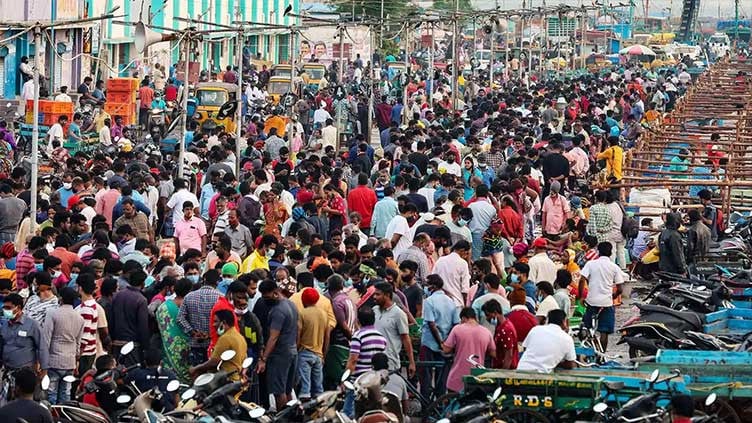
Iftikhar Khan, the advisor to the President of The Federation of Pakistan Chamber of Commerce and Industry (FPCCI), said on Sunday “The combination of the highest population growth and the lowest GDP growth is the perfect recipe for disaster.”
Speaking to the business community, he stated that Pakistan’s population is growing at the fastest rate in the region and will double by 2050. With 241.49 million inhabitants, Pakistan is currently the sixth most populated nation in the world, according to census statistics. Among them, 48.51 per cent are women and 51.48 per cent are men.
He warned that if the country's population continues at its current growth rate of 2.55 per cent, the country's already overwhelmed resources will become more difficult to manage. Statistics depict that in Pakistan, 36.47 million individuals are under five years old, 97.53 million are under fifteen, 62.58 million are between the ages of fifteen and twenty-nine, and 190.27 million are under forty.
According to literacy indices, 61% of Pakistanis who are ten years of age or older are literate, but Bangladesh and India have already outperformed Pakistan in several areas, including education.
“Pakistanis are on par with everyone in terms of intelligence and ability, but if we do not broaden our horizons, we will not even be considered as part of the global competition,” said Iftikhar Khan, underlining the necessity of maintaining political stability and peace, as well as the significance of maintaining policy consistency for a minimum of ten years.
Commenting on the budget, he stated that the recent budget controversy stems from its failure to provide any relief to the middle class. “Instead, it increased the effective income tax rate for salaried individuals to 39 per cent, for associations to 44 per cent, and non-salaried individuals to 50 per cent,” he said.
“At a time when this particular section of society has lost nearly half of its purchasing power in the last five years, the already stressed salaried class is facing an increase in taxes, which is difficult for the masses to accept.
The budget, instead of bringing some respite for the have-nots from the undue inflation for which they are the least responsible, has once again added to their agony by imposing additional levies on electricity, petrol, diesel, grocery items, property, etc.,” Iftikhar Khan noted.
He went on to explain that the major reason behind the surge in taxes was to secure a new deal with the International Monetary Fund to somehow keep the national economy afloat.
“The disastrous budget reveals the fault lines in the current power system, as the government consistently refuses to end the exemptions it grants to the bureaucracy. Similarly, the government excludes the retail and agriculture sectors, which wield significant political sway, from tax imposition. The IMF's insistence led to the removal of some exemptions, but the list of protections remains endless. Flawed policies are holding back the economy. We need a change that benefits the people at large, not just the privileged,” he said. APP
















COMMENTS
Comments are moderated and generally will be posted if they are on-topic and not abusive.
For more information, please see our Comments FAQ